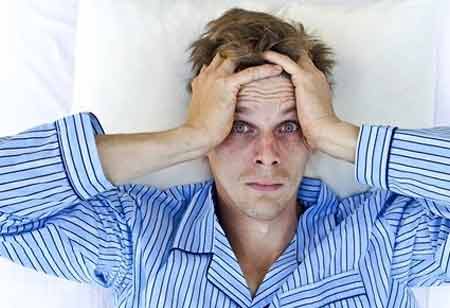What Are the Long-Term Effects of Less Sleep?
Some of the consequences of not getting enough sleep include extreme exhaustion, increased muscle tension, and vision and hearing difficulties.

By
Medical Care Review | Wednesday, April 16, 2025
Stay on top of your health and well-being with exclusive feature stories on the top medical clinics and treatment centers, expert insights and the latest news delivered straight to your inbox. Subscribe today.
FREMONT, CA: Going without sleep for even a day might be harmful. Long-term sleep deprivation can lead to cognitive impairment, hallucinations, and other adverse effects.
The longest known period of sleeplessness is around 264 hours or little more than 11 consecutive days. Although it is uncertain how long humans can go without sleep, the symptoms of sleep deprivation are noticeable quickly. After only three or four nights without sleep, individuals may begin to hallucinate. Prolonged sleep deprivation can result in delusions, cognitive disabilities, paranoia, irritability and psychosis.
Although death from sleep deprivation is extremely rare, it does occur.
What to anticipate after 24 hours without sleep: Missing 24 hours of sleep is not uncommon. One might stay up all night to work, study for an exam, or care for a sick child. Staying up all night may be uncomfortable, but it will have little effect on one's overall well-being. Even so, not getting enough sleep impacts individuals. Studies have connected 24-hour wakefulness to a blood alcohol concentration of 0.10 percent, which exceeds the legal driving limit in most states.
Going a full day without sleep can have the following effects:
● Impaired decision-making
● Fatigue
● Altered perception
● Irritability
● Impaired judgment
● Memory deficiencies
● Reduced hand-eye coordination.
● Visual and hearing deficits
● Increased muscular tension.
● Tremors
What to anticipate after a 36-hour sleepless night: Staying up for just 36 hours might significantly impact one's body. The sleep-wake cycle regulates the release of several hormones, such as cortisol, insulin, and human growth hormone. As a result, going without sleep for an extended period of time might affect various bodily functions, including metabolism, appetite, mood, temperature and stress level.
Going 36 hours without sleep can have the following effects:
● Reduced motivation
● Rigid thinking
● Extreme exhaustion
● Diminished focus
● Hormonal imbalances
● Speech problems, such as poor word selection and intonation.
Can food and water intake affect this?
Sleep deprivation can affect the appetite and the meals one crave. Studies have shown that sleep deprivation is related to increased hunger and a desire for weight-gaining foods. However, consuming empty calories can make people feel even more exhausted.
Eating healthy may alleviate some of the consequences of sleep deprivation, but only to a certain extent. Since the body conserves energy, choosing lean, protein-rich foods like almonds and nut butter, cottage cheese, or tofu is necessary.
How much sleep is necessary for individuals?
Sleep requirements vary according to age. Adults require less sleep than babies and infants. Gender may also influence how much sleep one needs. Studies have shown that women sleep significantly longer than men, although the reasons for this are unknown.
Sleep quality is also crucial. If individuals are concerned about how much sleep they receive, they should visit the doctor.







